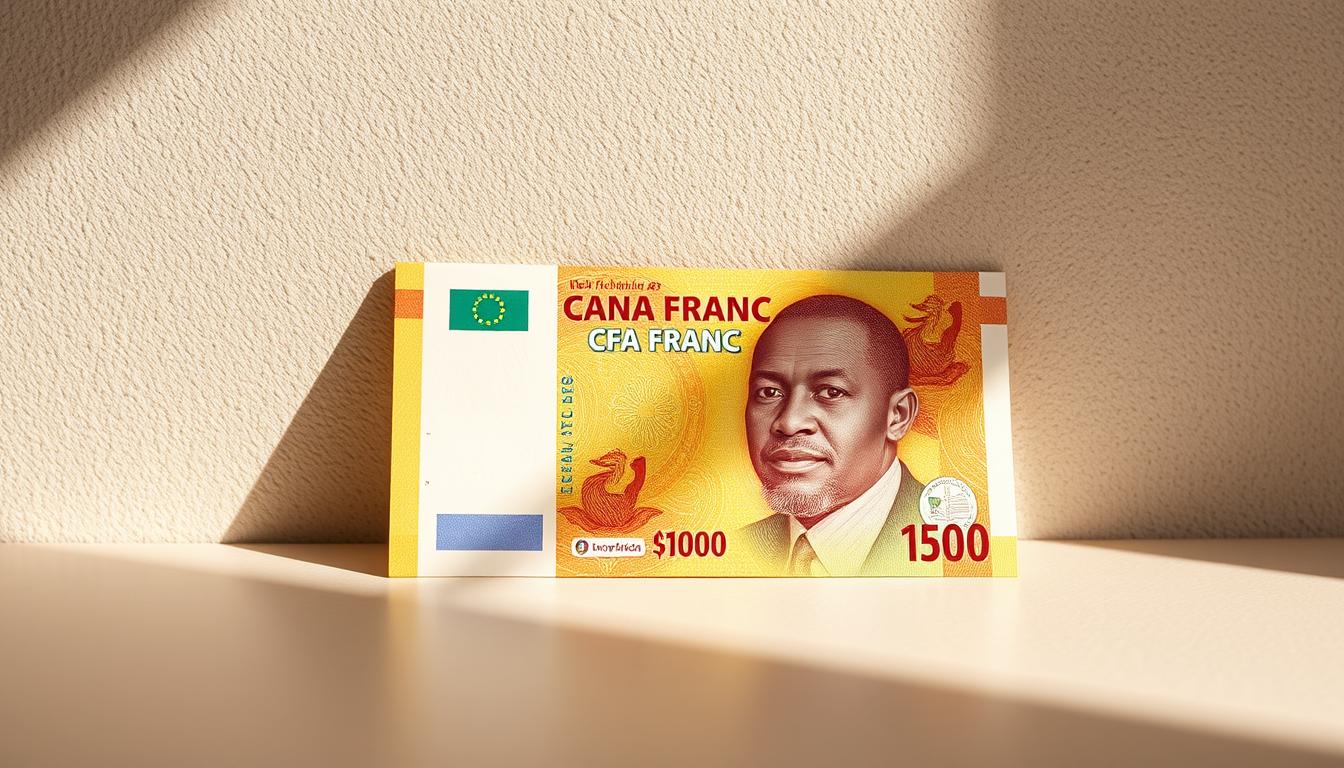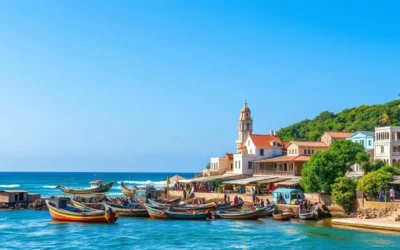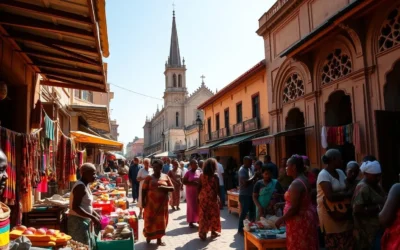✓ Accommodations✓ Flights✓ Rental Cars
Did you know that the West African CFA franc, used in Côte d’Ivoire, is directly tied to the Euro? This unique connection ensures stable exchange rates, making it easier for travelers to plan their trip without worrying about sudden currency fluctuations.
In this guide, you’ll learn everything about managing money in Ivory Coast. From understanding the structure of the CFA franc to practical tips for handling payments, we’ve got you covered. Whether you’re exploring bustling markets or relaxing by the water, knowing the local currency system will make your travel experience smoother.
This destination offers a rich cultural experience, and being prepared financially is a key part of your journey. Let’s dive into what you need to know before you go!
Overview of Ivory Coast Currency & Payment Systems
Navigating payments in Côte d’Ivoire starts with knowing the CFA franc. This currency is the backbone of financial transactions in the country. It’s divided into notes and coins, making it easy to handle daily expenses.
Breakdown of Notes, Coins, and Exchange Rates
The CFA franc comes in notes of XOF10,000, 5,000, 2,000, and 1,000. Coins range from XOF500 down to XOF1. This variety ensures you can pay for anything, from a quick snack to a hotel stay.
The exchange rate is pegged to the Euro, providing stability. This means you won’t face sudden fluctuations during your trip. Always check the current rate before exchanging money to get the best value.
Accepted Payment Methods & Card Usage
Credit cards like Visa and MasterCard are widely accepted, especially in urban areas. Hotels, restaurants, and larger stores often take cards, but it’s wise to carry cash for smaller vendors.
ATMs are available in cities, but they may be scarce in rural areas. If you’re traveling outside major towns, plan ahead and withdraw enough cash to cover your needs.
Traveler’s cheques are another option, though they’re less common. Always confirm with your hotel or restaurant if they accept them before relying on this method.
Essential Bank and ATM Information in Ivory Coast
Access to ATMs can vary greatly between urban and rural areas in Côte d’Ivoire. In major cities like Abidjan, you’ll find plenty of ATMs, making it easy to withdraw cash. However, in rural regions, banking services are limited, and ATMs may be unreliable or unavailable.
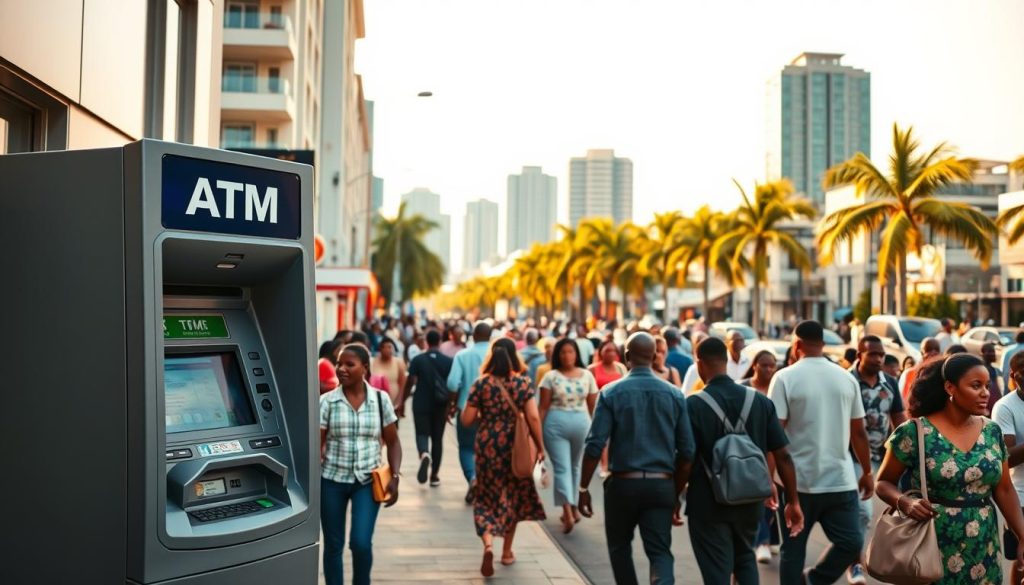
To avoid running out of cash, plan ahead. If you’re traveling outside cities, withdraw enough money to cover your expenses. Always check the reliability of local ATMs and have alternative payment methods ready.
ATM Accessibility in Urban vs. Rural Areas
In cities, ATMs are widely available and often located near banks, hotels, and shopping centers. They’re convenient for both locals and visitors. However, in rural areas, you might need to travel long distances to find one.
Here’s a quick comparison to help you plan:
| Location | ATM Availability | Tips |
|---|---|---|
| Urban Areas | Plentiful and reliable | Use ATMs during daylight hours for safety. |
| Rural Areas | Limited and unreliable | Carry enough cash before traveling. |
When using ATMs, always cover the keypad when entering your PIN. Be cautious of your surroundings, especially at night. If you’re unsure about an ATM’s reliability, ask a trusted local person for advice.
By planning ahead and staying aware, you can manage your finances smoothly, whether you’re in a bustling city or a quiet rural area.
Using the CFA Franc: Tips for Currency Exchange
Understanding how to exchange the CFA franc can save you time and money during your trip. Whether you’re arriving at the airport or exploring local markets, knowing where and how to convert your money is essential.
Best Exchange Locations and Their Rates
Exchanging your money at the right place ensures you get the best rate. Airports, banks, and hotels are common options, but rates can vary. Banks typically offer competitive rates, while airport exchanges may charge a premium for convenience.
If you’re in a city, look for authorized exchange centers. These often provide better rates than hotels. Always compare rates before committing to a transaction to make sure you’re getting a fair deal.
Understanding the Euro Connection
The CFA franc is pegged to the Euro, which means its value remains stable. This fixed rate simplifies currency conversion, especially if you’re coming from a Eurozone country. However, if you’re using USD or another currency, check the current exchange rate to maximize your cash.
This connection also means the CFA franc’s value is influenced by the Euro’s economic health. Keep an eye on global market trends to plan your exchanges effectively.
By following these tips, you’ll navigate currency exchange with ease, ensuring a smooth financial experience during your travels.
Travel Safety and Security When Managing Money
Staying safe while managing money abroad is a top priority for any traveler. Understanding the local security landscape and knowing how to protect your funds can make your trip smoother and stress-free. Here’s what you need to know to stay secure.
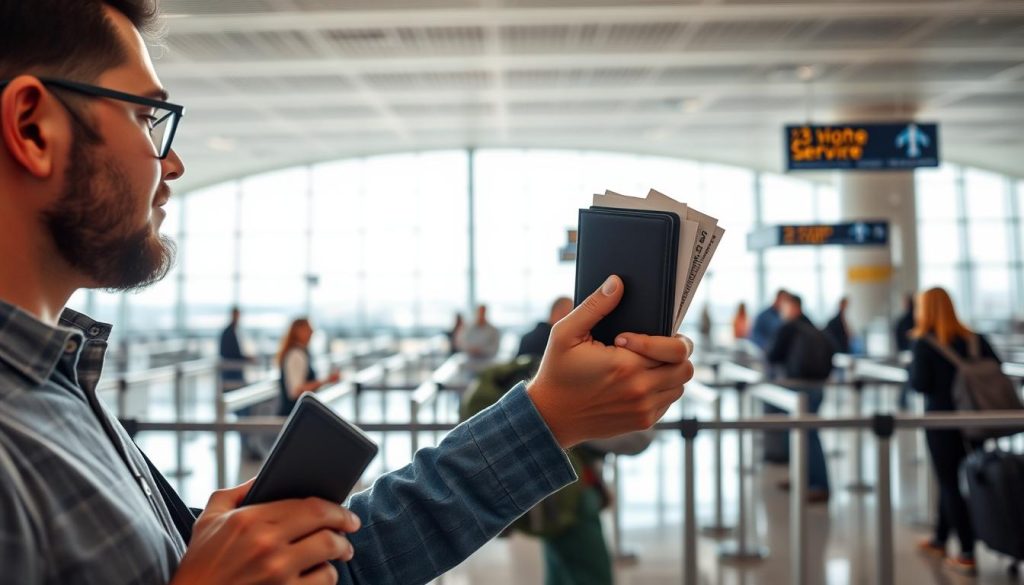
Avoiding Fraud and Scams
Fraud and scams can happen anywhere, but being aware of common tactics can reduce your risk. Always keep your money and cards in a secure place, and avoid displaying large amounts of cash in public. Be cautious of unsolicited offers or too-good-to-be-true deals, as these are often scams.
If someone approaches you with a suspicious offer, politely decline and walk away. It’s also a good idea to research common scams in the area before your trip. This knowledge can help you spot and avoid potential crime.
Handling Police and Security Interactions
Interacting with local police or security forces can be intimidating, but staying calm and respectful is key. Always carry identification and a copy of your passport. If approached, remain polite and follow instructions.
In some cases, you may be asked for a tip or bribe. While it’s best to avoid such situations, your safety comes first. If you feel threatened, comply and report the incident to your embassy or consulate later.
Secure Use of ATMs in Vulnerable Areas
Using ATMs in unfamiliar places can pose a risk. Always choose machines located in well-lit, busy areas, preferably inside banks or malls. Cover the keypad when entering your PIN, and be aware of your surroundings.
If an ATM looks tampered with or out of place, avoid using it. It’s also wise to withdraw smaller amounts of cash more frequently rather than carrying large sums. This minimizes potential losses in case of theft.
By following these tips, you can protect your money and enjoy a safer travel experience. Staying informed and vigilant is the best way to avoid crime and ensure your trip goes smoothly.
Ivory Coast: Ultimate Travelers Guide to Currencies & Payments
Handling money in Côte d’Ivoire doesn’t have to be complicated with the right information. Whether you’re a traveler exploring bustling markets or a business professional attending meetings, understanding the local financial system is essential.
Here’s a quick summary of what you need to know to manage your finances effectively:
- Currency: The West African CFA franc is the official currency, pegged to the Euro for stability. Always check the exchange rate before converting your money.
- Payment Methods: Credit cards like Visa and MasterCard are widely accepted in cities, but cash is king in rural areas. Carry small bills for convenience.
- ATMs: While ATMs are plentiful in urban centers, they may be scarce in rural regions. Plan ahead and withdraw enough cash for your needs.
Staying informed about local practices can save you time and hassle. For example, knowing that business hours are typically from 7:30 AM to 6 PM can help you plan your banking errands efficiently.
Security is another important part of managing money abroad. Avoid displaying large amounts of cash in public and use ATMs in well-lit, secure locations. If you’re unsure about an ATM’s reliability, ask a trusted local person for advice.
By following these tips, you’ll navigate financial transactions with ease, ensuring a smooth and stress-free experience in Côte d’Ivoire.
Managing Payment Services at Hotels and Restaurants
When dining or staying in Côte d’Ivoire, understanding payment options can enhance your experience. Whether you’re enjoying a meal at a local restaurant or checking into a hotel, knowing what to expect ensures a smooth transaction.
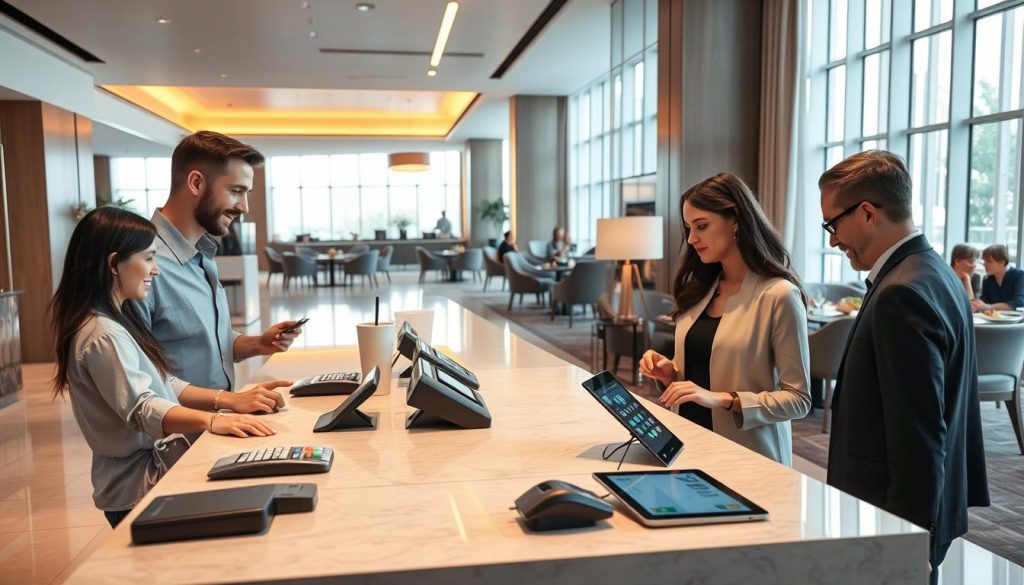
Credit and Traveler’s Cheque Acceptance Tips
Major hotels and established restaurants in urban areas often accept international credit cards like Visa and MasterCard. Traveler’s cheques are also accepted, though they’re less common. Always confirm payment methods before relying on them, especially in rural areas.
For smaller vendors or local eateries, cash is the preferred method. Carrying small bills can make transactions easier and faster. If you’re unsure about a restaurant’s payment options, ask ahead or check online reviews.
Tipping and Service Charge Practices
Tipping is appreciated but not mandatory in Côte d’Ivoire. A tip of 5-10% is customary for good service in restaurants. Some establishments include a service charge in the bill, so check before adding extra.
In hotels, tipping staff like porters or housekeeping is a kind gesture. A small amount, such as XOF500-1,000, is sufficient. Always carry cash for tips, as they’re rarely added to card payments.
By understanding these practices, you can navigate payments confidently and enjoy your time in Côte d’Ivoire without surprises.
Handling Duty Free and Customs Regulations
Understanding customs regulations can make your entry into Côte d’Ivoire hassle-free. Knowing what you can bring and what’s restricted ensures a smooth experience. The government has clear rules to help you navigate these processes without surprises.
When arriving, you’ll find duty-free allowances for items like cigarettes, alcohol, and cosmetics. These limits are designed to balance personal use and custom regulations. Always check the latest information to avoid penalties.
Allowances and Restrictions at Entry Points
Duty-free allowances vary depending on the item. For example, you can bring a limited number of cigarettes and alcohol without paying extra fees. Cosmetics and personal goods are also included, but quantities are monitored.
Certain items are banned entirely, such as illegal drugs or counterfeit goods. Always declare large sums of money, as this is a government requirement. Keeping receipts and documentation can help you avoid issues at custom checkpoints.
Here’s a quick guide to duty-free allowances:
| Item | Allowance | Notes |
|---|---|---|
| Cigarettes | 200 sticks | Must be for personal use. |
| Alcohol | 1 liter | Spirits or wine only. |
| Cosmetics | Reasonable quantity | Subject to inspection. |
When shopping at the market or duty-free stores, keep receipts handy. These documents can prove the value of your purchases and prevent misunderstandings. If you’re unsure about an item, ask for information before buying.
By following these guidelines, you’ll navigate customs with ease and enjoy your trip without unnecessary delays.
Electronic Payments and Mobile Banking Insights
Electronic payments are transforming how people handle money in Côte d’Ivoire. With the rise of digital financial services, managing your funds has never been easier. Whether you’re using a card or exploring mobile banking, this section will guide you through the evolving landscape.
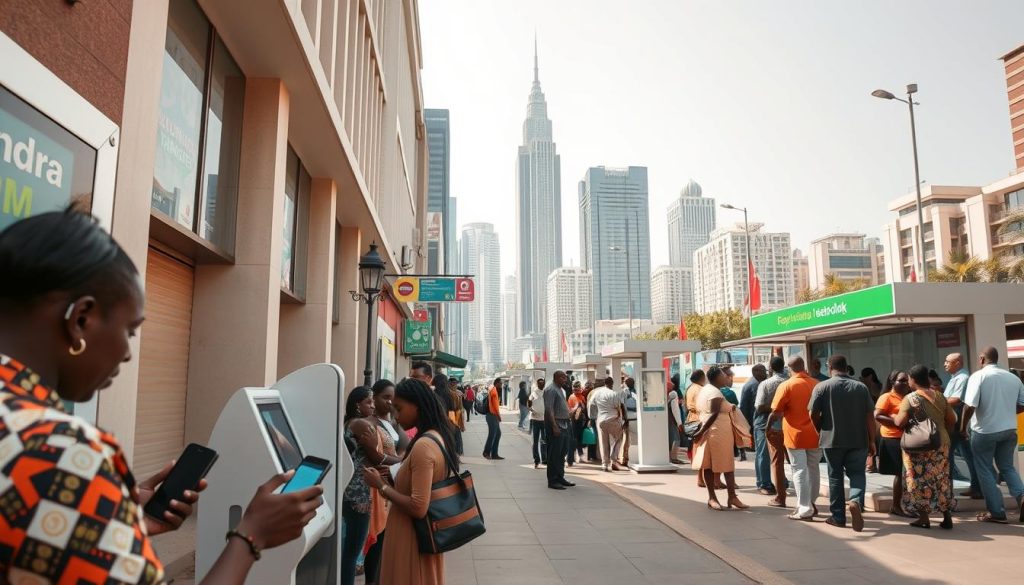
In urban areas, credit and debit cards are widely accepted at hotels, restaurants, and stores. However, in rural regions, cash remains the primary method of payment. Always carry some cash as a backup, especially when traveling outside cities.
Mobile banking is gaining traction, offering a convenient way to access your funds. Apps like Orange Money and MTN Mobile Money allow you to transfer money, pay bills, and even withdraw cash from agents. These services are particularly useful in areas with limited ATM access.
To ensure security, follow these tips when using digital payment methods:
- Always use trusted apps and websites for transactions.
- Enable two-factor authentication for added protection.
- Avoid sharing your PIN or password with anyone.
Here’s a comparison of payment methods in urban and rural areas:
| Location | Payment Methods | Tips |
|---|---|---|
| Urban Areas | Cards, mobile apps, ATMs | Use ATMs in well-lit, secure locations. |
| Rural Areas | Cash, mobile money agents | Carry enough cash and use trusted agents. |
By staying informed and cautious, you can confidently use electronic payment methods wherever you go. Whether you’re by the water or in a bustling market, managing your money digitally is becoming a seamless experience.
Unique Currency Considerations for International Travelers
Preparing for international travel involves more than just packing your bags. Ensuring you have the right documents and health precautions in place is crucial for a smooth journey. This section covers everything you need to know about visa requirements, passport rules, and essential health tips.
Visa, Passport, and E-Visa Requirements
Before you travel, check the visa requirements for your destination. Many countries, including Côte d’Ivoire, offer e-visas for convenience. Ensure your passport is valid for at least six months beyond your travel dates to avoid issues at entry points.
Applying for an e-visa is straightforward. Visit the official government website, fill out the form, and upload the necessary documents. Processing times vary, so apply well in advance of your trip.
Health, Insurance, and Medical Precautions
Your health is a top priority when traveling. Some destinations require specific vaccinations, such as the yellow fever vaccine. Check with your healthcare provider to ensure you’re up-to-date on all necessary immunizations.
Travel insurance is another essential. It covers unexpected medical expenses, trip cancellations, and other emergencies. Look for a plan that includes medical insurance and 24/7 support for peace of mind.
Here’s a quick checklist to help you plan your health and safety:
- Verify visa and passport requirements.
- Get vaccinated for yellow fever and other recommended diseases.
- Purchase comprehensive travel insurance.
- Carry a copy of your health records and emergency contacts.
By following these steps, you’ll minimize risk and ensure a safe, enjoyable trip. Proper preparation is the key to a stress-free travel experience.
Conclusion
Planning your finances in this vibrant country ensures a smooth and stress-free experience. From understanding the local currency to navigating security measures, being prepared is key. Always carry your passport and ensure you have travel insurance for added safety.
Stay alert to potential risks, especially when using ATMs or handling cash. Keep your health in check by staying updated on vaccinations like yellow fever. These steps will help you make the most of your time here.
By following these tips, you’ll feel confident and ready to explore everything this destination has to offer. Safe travels!
The above is subject to change.
Check back often to TRAVEL.COM for the latest travel tips and deals.
